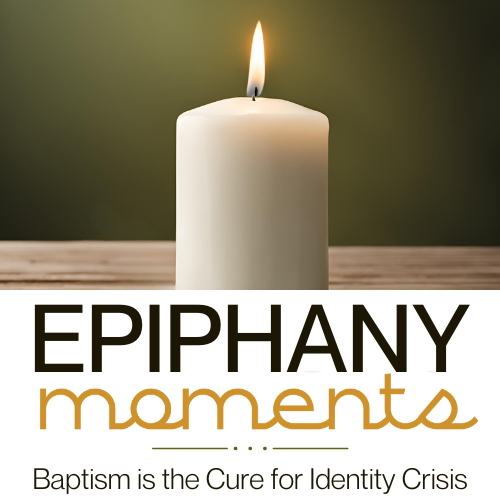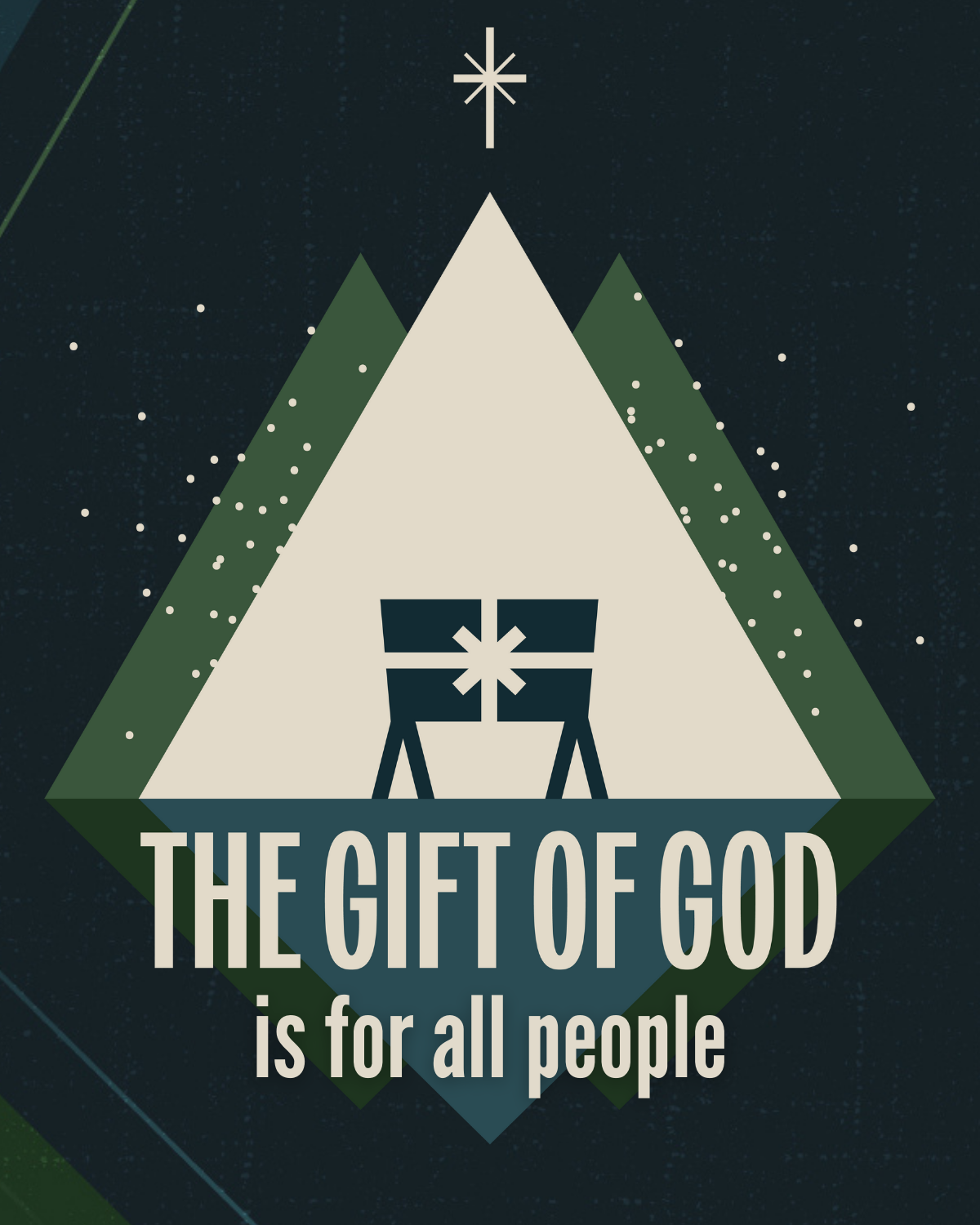Watch the livestream beginning at 10:30 a.m. on Sunday. After the livestream is finished, the video will be available to watch at any time.
First Lesson: Ecclesiastes 5:10-20 (NIV)
Second Lesson: 1 Timothy 6:6-10, 17-19 (NIV)
Gospel: Luke 16:1-13 (NIV)
Music:
- CW 919 Blessed Jesus, at Your Word
- CW 807 All Depends on Our Possessing
- CW 929 May the Peace of God
- 5th – 8th grade: Come, Thou Fount of Every Blessing
Is money valuable? Seems like a rhetorical question. Of course, it has value, that’s the whole point of its existence. So much so that money is sung about in songs. It’s quoted in movies. Most of us have probably even dreamed of being rich at some point. Perhaps there is a better question to ask. Does money have enough value to bring you true joy? Today, we take a look at that question through the eyes of King Solomon.
King Solomon was filthy rich and extremely powerful. Those things, mixed together with his great wisdom, allowed Solomon access to pretty much everything he wanted in this world. And he denied himself nothing. He tried cheering himself with wine, undertook great projects, built multiple houses for himself, planted many vineyards so he could have more wine, made parks and gardens with all types of fruit trees, made reservoirs of water for himself, bought male and female slaves, owned more herds and flocks than anyone one else in Jerusalem before him. He amassed silver and gold beyond measure from many kings and provinces. The Bible notes his income was over 25 tons of gold per year. He acquired male and female singers, and even a harem. And that’s just a small list of what he had. Now, I am not saying all of these things are good things. What I am saying is Solomon withheld from himself nothing this world has to offer, good or very bad. And yet, with everything he could even dream of, Solomon still found himself to be an empty-hearted man in the world. Here, in Ecclesiastes as an older man, he reflects on why that was. Why don’t riches satisfy?
Solomon gives 3 powerful reasons in our text for today. The first is “Whoever loves money never has enough.” John D. Rockefeller, who some consider to be the wealthiest American of all time, was once asked, “How much money does it take to satisfy a person?” His answer: “Always a little bit more.”
If I ask you if you’d rather have $5 or $10, which would you rather have? If I ask you if you could have $50 or $100, which would you take? If you had the choice between $10,000 or $100,000, which would you choose? We could keep doing this exercise, but I think most of us would always take the bigger number because we would always want a little more. Solomon was like this too. It was never quite enough for him. He didn’t say, “I’m good,” but rather, “I want more.”
Solomon’s second reason why riches don’t satisfy is, “As goods increase, so do those who consume them. And what benefit are they to the owners except to feast their eyes on them?” Solomon had a palace bigger than even the great temple. That meant a lot of extra concerns he had to sink his money into. He had to have heads over his households and many servants just to keep track of everything. He needed captains for his ships. He needed handlers for the wild animals he kept. His riches made everything more complicated. I’m sure he always had to wonder if people liked him for him or just because he had so much wealth, more than he could ever use. Simply put, the more one has, the more effort it takes to keep track of it all, the more people there are that put a drain on that wealth.
Maybe a present-day example might be if you buy a house. Now it’s not a bad thing to have a house. I’m not saying that’s sinful, but sometimes it can make things more complicated. If you buy a house, often that comes with a yard. And if you want it to look good, that means landscaping. That means mowing and watering that lawn. That means maintenance for the house now falls on you to take care of. And that’s just one thing, your property. The more things you own, the more bills you pay, the more upkeep, the more things you try to involve yourself with and stay up to date on. Possessions can actually fill up one’s schedule quickly and distract you from other things that matter more.
Solomon’s third reason why riches don’t satisfy is, “the sleep of the laborer is sweet, whether they eat little or much, but as for the rich, their abundance permits them no sleep.” When you don’t have as much, you have less to worry about. Solomon tossed and turned every night wondering if his cattle were ok, if his many wives were getting along, if his possessions were being stolen, even if that 100th ton of gold remained safely in his treasury. And he was always worried about not having enough.
Solomon sums up his reasoning by stating, “I have seen a grievous evil under the sun: wealth hoarded to the harm of its owners.” We like to think that we own our possessions, but we have to be careful because sometimes our possessions can own us. Surrounding ourselves with riches and wealth isn’t guaranteed to bring happiness. Sometimes it even slowly siphons joy away. And the scary thing about putting your joy in money, is money can disappear. Sometimes through poor choices, sometimes from unavoidable factors, wealth can be taken away in an instant. Even people with plenty of wealth have had to declare bankruptcy at some point. Donald Trump had to. So did Walt Disney, Thomas Jefferson, Stan Lee, Michael Jackson, Dave Ramsey, Mark Twain, Marvin Gaye, John Wayne, and the list goes on and on.
Regardless of your financial situation, at some point death will take the rest from you. Legend has it that When Alexander the Great lay on his deathbed he commanded that contrary to the usual custom his hands not be wrapped. He wanted everyone to see that a person must leave this world empty handed. It’s ironic that at the moment of death the greatest conquerors and richest emperors will be on the same playing field as the poorest beggars.
In the grand scheme of the history of the world, we are incredibly rich and incredibly blessed. How do I know this? Because I think back on the things I’ve wanted over the course of my life. While a portion of the world has been concerned with having food and clothing for the day, what are the types of things you’ve longed for in life?
When I was 5 or 6, I told my parents I had to have something. Do any of you remember what POGS are? They are kind of like milk caps, these little circles of hard cardboard that you could play games with. There existed some power ranger POGS. And I had to have them because based on the advertisement I couldn’t save the world without them. And eventually I got them. I was convinced I would keep them forever and ever and treasure them with all my heart. Where do you think they are now?… I honestly have no idea. I care so little at this point, I don’t know if they were sold or are sitting in the garage somewhere. Shows how much I know what I really want and need. How about you? Can you think of something that you thought you would treasure forever, but has long since been in the trash or sits unused in the garage? Do you still hold that VHS tape up and claim that nothing will ever replace that great technology? Again, there is nothing wrong with having stuff, but when it becomes our number one priority, it’s asking for trouble. When we serve money and have a heart for gold instead of gold we set ourselves up not for joy, but for misery.
Colossians 3:1-3 does not put it nicely. It says, “Now listen, you rich people, weep and wail because of the misery that is coming on you. Your wealth has rotted, and moths have eaten your clothes. Your gold and silver are corroded.” Or an even more vivid picture is, “You have fattened yourselves in the day of slaughter (Colossians 3:5).” 1 Peter 5:8 tells us the devil is like a prowling lion looking for someone to devour. We fatten ourselves with sin and make ourselves easy targets, like we are big juicy steaks already prepared and seasoned for him to devour.
Solomon was wise enough to understand this concept. Even though he was ludicrously rich, he couldn’t buy happiness, youth, or eternal life. Even though he built some of the most magnificent and advanced buildings, he knew they would all crumble over time. Even though he had every comfort in the world, somehow he couldn’t find comfort. Even though he toiled during the day and thought about his work at night, he couldn’t find satisfaction. And no matter how much money and power he had, he couldn’t stop the great equalizer…death. It would take away everything he owned from him.
What is the big point Solomon is getting at? Riches aren’t the answer to joy. Chasing after wealth with all your heart is like chasing after the wind. You’re burning yourself out for something that won’t last. You will never truly get what you want or need. You can’t buy joy with money. You might be able to rent it for a short time, but it won’t last into eternity. So what’s left then? The whole purpose of the book of Ecclesiastes begins to emerge. It’s not to put you into a tailspin of despair about life, but it’s trying to contrast something that is beautiful. There is only one place left for the human heart to be. Jesus is the only way to true joy.
This is shown throughout the whole Bible. Here are some selected passages from Psalm 34 that explain this.
“9 for those who fear him lack nothing.”
“18 The Lord is close to the brokenhearted and saves those who are crushed in spirit.”
“19 The righteous person may have many troubles, but the Lord delivers him from them all;”
“22.The Lord will rescue his servants; no one who takes refuge in him will be condemned.”
You see, every life is precious to God and valued by him above all else. He could’ve reached past us and collected great riches for himself. He could even create it for himself if he wanted to, but he has his eyes on saving you. And this brings great treasure to us.
Understanding Jesus, the one true God and how he died for the sins of the world transforms us into people of faith who overcome this dying, sinful world by clinging to what is enough. To what doesn’t become drained or lose its luster. To what quenches worries. Without him nothing satisfies, but with him you find satisfaction and enjoyment. True pleasure comes only when you acknowledge and revere God (12:13). His love does not wear out or break. The more you tend your faith and find yourself in Jesus, the more you will realize you already possess the best things this world can offer: His Word, His sacrifice, his forgiveness, and the faith he has given you.
So what’s left for you to do? The honest answer is not much. The pressure is off. I don’t have to have more money than my neighbor, more likes on my latest post, or be anxious that I wasn’t perfect in absolutely everything. I have everything I need in God.
But God tells us through Ecclesiastes, here are some of the things you can do: Rejoice! Enjoy yourself! Enjoy the gifts God gives you from the big eternal gifts to the smallest gifts of daily bread. Have fun in the simple tasks God assigns you because God uses even the simple things as part of his plan for you. Relish in your life because no matter how small life’s gifts seem, we know that God has given himself to us along with it. God’s grace allows us to enjoy them.
Solomon came to the conclusion that everything he did and owned wouldn’t be enough to find true joy. And believe me, he tried. But he found even the simplest things in Christ were able to satisfy. And I hope this comforts you too in times when you are happy or sad. The Lord loves you. That’s valuable. That has enough value to bring you joy.



